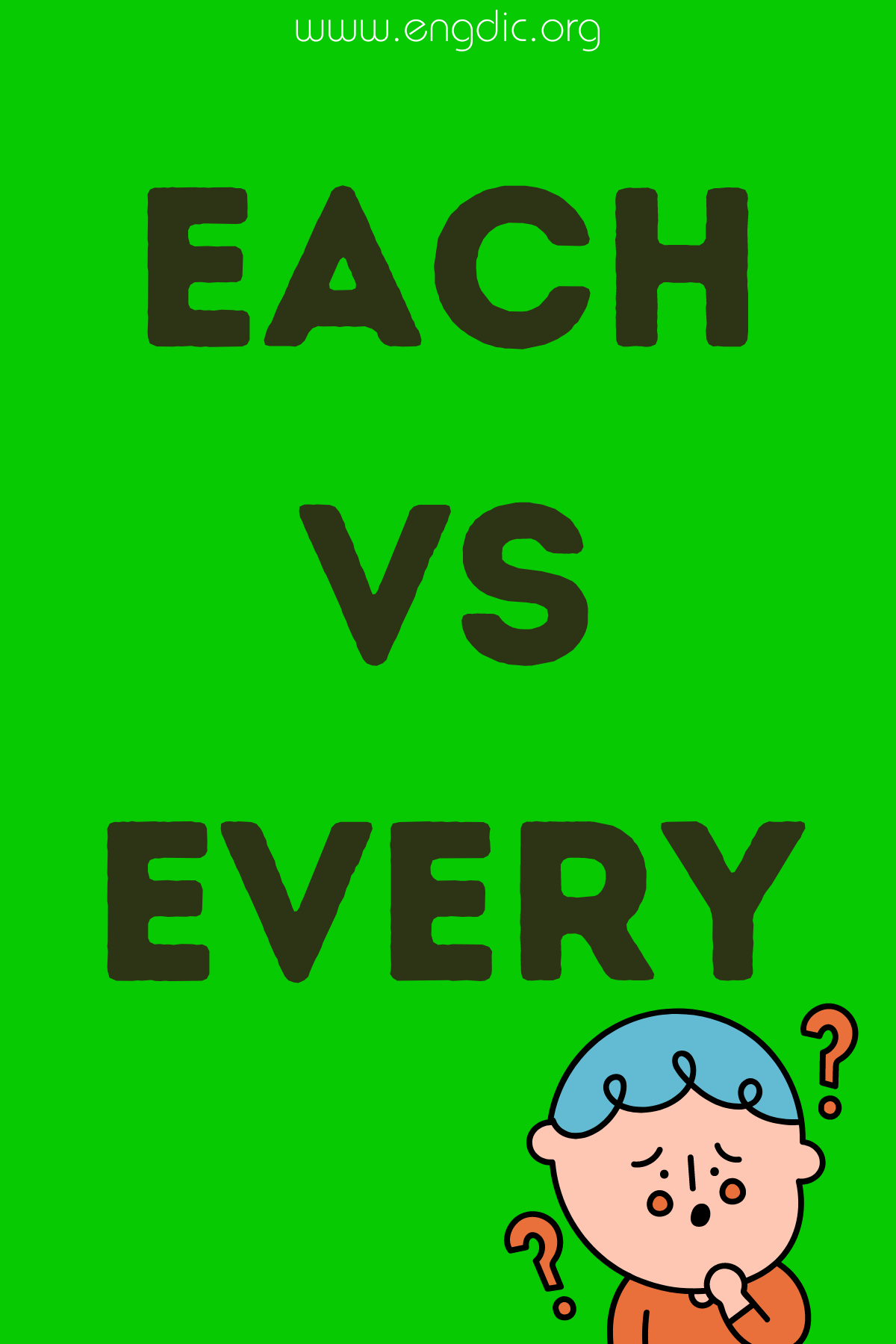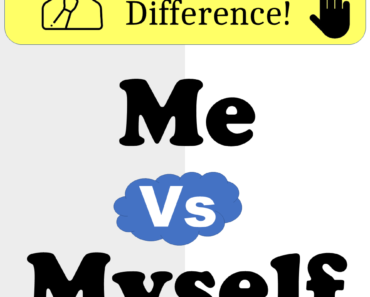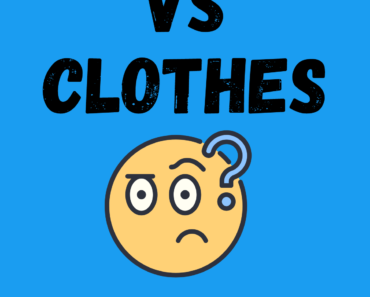While both “each” and “every” refer to individuals within a group, they emphasize different aspects of the group. “Each” focuses on individual members of a group, treating them as separate and distinct. It is often used when the action or characteristic applies distinctly to every member of the group.
On the other hand, “every” suggests a collective or inclusive aspect, emphasizing the totality of the group as a whole. This word is typically used when the action or characteristic is uniform or consistent across all members.
Each:
Definition: “Each” refers to every one of two or more individuals or items, considered separately.
Usage and Examples:
- Individual Attention: “Each” is used when highlighting or addressing members of a group individually.
- Example: “Each student in the class must submit their own project.”
- Distribution: It implies a one-by-one allocation or consideration.
- Example: “Each member of the team received a trophy.”
- With Numbers: “Each” can be used with numbers to denote the individual distribution.
- Example: “The tickets cost $50 each.”
Every:
Definition: “Every” refers to all the members of a group, seen as a collective.
Usage and Examples:
- Repetition or Regularity: “Every” is used to indicate frequency within a regular pattern or sequence.
- Example: “Every week, we have a team meeting.”
- Without Exception: It emphasizes inclusiveness within a group, covering all cases.
- Example: “Every car in the lot was inspected.”
- With Time and Events: Often used to denote recurrence over intervals.
- Example: “The conference is held every two years.”
Understanding these nuances helps in choosing the right word based on whether the focus is on individual members or the group as a whole.







